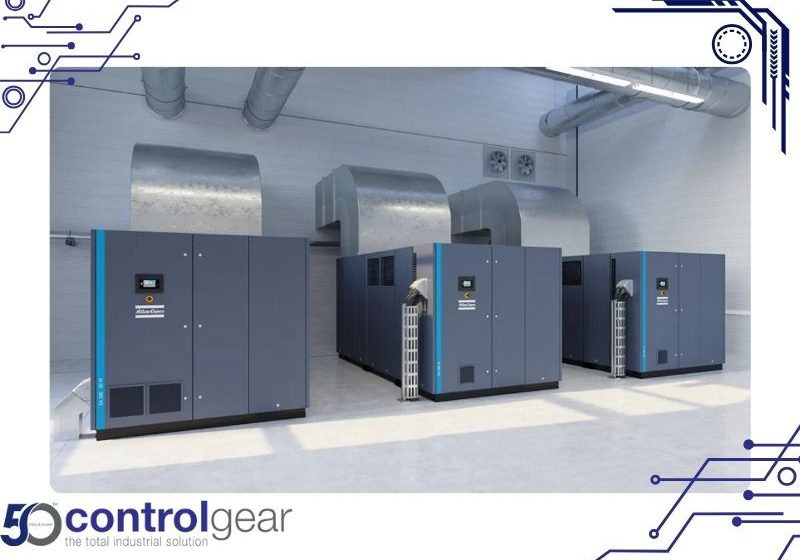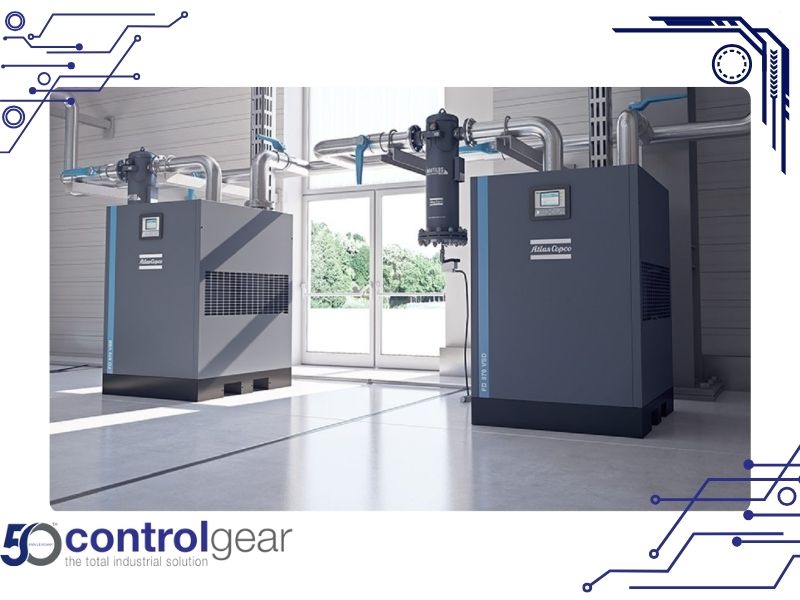
Air Compressors in the Food and Beverage Industry
Compressed air will have been used with almost everything you eat or drink. With a broad range of applications throughout the manufacturing process, from preparation to packaging, air compressors are a vital part of production lines in the food and beverage industry.
The sector is, however, heavily regulated. As you might expect, the standards required for food and beverage processing and manufacture are exceptionally high. The standards for compressed air equipment are just as high, but a well-maintained air compressor can help businesses maintain a clean, hygienic, and efficient production process.
Table of Contents
Types of Air Compressors Used in the Food Industry
The majority of air compressors used in food and beverage applications are positive displacement compressors. In simple terms, this means that they squeeze air into a smaller volume. Common types include piston compressors, rotary screw compressors, and scroll compressors, the difference between them is how they compress the air.
Piston compressors use a camber to compress alternative chambers. Rotary screw and scroll compressors will have one or two screws constantly rotating and squeezing the air into a smaller space, and these types tend to be most used in the food sector.
Like most machinery, compressors often rely on oil to lubricate parts and minimise wear and tear. This leads many businesses to choose oil-free compressors, so they can guarantee oil-free compressed air systems. However, with adequate filters and regular servicing, any type of compressor can meet the regulatory standards required for food.
Applications of Air Compressors in the Food Industry
Compressed air’s versatility means a comprehensive list of uses is impossible. But some of the more common applications include:
Preparation
Compressed air can be used in food processing and preparation, like blowing off soil and debris from vegetables. It can even be used to shell or peel some ingredients or as a blade to cut and chop foods.
Mixing
Compressed air can either power mixing equipment, or directly mix some types of ingredients, ensuring a thorough and even mix.
Pumping
Air compressors are ideal for controlling pumping operations, whether these are for beverages or food products, they can offer the precision required for manufacture.
Cooling and freezing
Compressed air can help speed processes by cooling products. Or even be used as part of the freezing process to chill food rapidly.
Cleaning
Compressed air blowers are frequently used at multiple stages to remove waste, whether it’s dirt, spilt ingredients, or trimmings, it keeps surfaces debris-free, and reduces the risk of blockages.
Nitrogen generation
Most of the atmosphere is nitrogen, and air compressors are used in nitrogen generation. Because nitrogen is harmless, it is used in preparation and packaging. A common use is to ‘flush’ packaging, ensuring that there is nothing that could cause the food product to spoil.
Packaging
Compressed air can be used to manipulate and handle packaging, both for the product and packing multiple items for onward shipping, handling even delicate items with care.
Benefits of Using Air Compressors in the Food Industry
Just like other sectors, compressed air brings some significant benefits to the food and drink industry.
Efficiency
Compressed air is a very efficient way to power a whole range of processes. With a well-designed system, there is very little power loss between the compressor and the point of use, and modern compressors are excellent at responding to need, helping to keep operating costs low.
Versatility with ease-of-use
The wide range of applications brings benefits like maintenance, energy savings and space use because it can replace many task-specific tools.
Hygiene and safety
Compressed air can replace physical tools in many situations, removing the dangers they carry. Items like blades and mixing tools, for example, will need regular cleaning and or pose a safety risk in operation.

Challenges and Solutions
Compressed air brings many benefits to the food and drink sector. However, generating high-quality, pure food-grade compressed air or nitrogen also presents some challenges.
The biggest is ensuring contaminant-free air: the air we breathe is not as pure as we might think. The water vapour, pollen, mould spores, and particles that surround us have to be removed from the compressed air. And, depending on the type of compressor, there is the additional risk of oil contamination.
The International Standards Organisation has created a classification for compressed air purity, which lists three numbers to represent a class for particulates, water or water vapour, and oil, respectively. The British Compressed Air Society recommends purity classes based on use. Direct-contact uses, where the compressed air is used in contact with food, such as during preparation or mixing, has the most stringent air quality class with a 2:2:1 standard. Indirect-contact uses, such as manipulating packaging, should meet a 2:4:2 standard. Leading compressor manufacturer, Atlas Copco suggests that a 1:3:0 standard is adequate for most food and beverage uses.
To illustrate how strict those recommendations are, a 2:2:1 rating would need to have fewer than one hundred particles between one thousandth and five-thousandth of a millimetre in size, absolutely no liquid water, and less than 0.1 mg of oil per cubic metre.
Implementing best practices
Best practice will seek to minimise contamination and pollution throughout the process. For example, ambient air will be filtered, removing atmospheric pollution such as solid particulates, before the compression process. Air driers will also be used to remove any water droplets or vapour.
Good maintenance will minimise the contamination risk during compression, by keeping the compressor at optimum performance. However, even after that, further filtration can remove remaining contaminants, including any remaining oil. Together, this can ensure the compressed air meets even the rigorous standards required for food.
Choosing your air compressor
Although meeting those high standards seems daunting, a good air compressor, combined with a good servicing, makes it easy. We can recommend, supply, and install a compressor that meets your needs.
And if you already have a compressor, we offer a range of servicing contracts, including full auditing and testing of your air quality and equipment, so you know — and can prove — your compressed air quality.
If you are looking for a new compressor, or want to make sure your existing compressed air system is working at its best, contact Control Gear today to make sure you are getting the best you can from your compressor.
